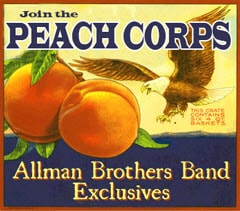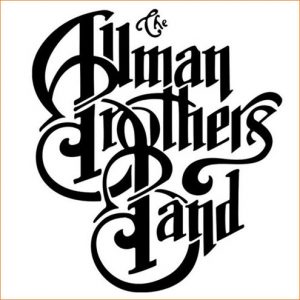By Greg Kot
Chicago Tribune
Charging that the radio industry has become a monopoly that restricts airplay of new music and harms artists financially, an unprecedented coalition of musicians, recording artists, labor groups, retailers and record companies has joined with politicians to call for sweeping changes in an industry they call “anti-artist, anti-competition and anti-consumer.”
The group also is calling for reform of so-called legal payola. The widespread practice involves record companies funneling promotional money–estimated as high as $300 million a year by one record company executive–to radio stations through independent promoters in exchange for airplay consideration.
The campaign, which will include legislation promised by Sen. Russell Feingold (D-Wis.), will begin Friday with the release of a joint statement signed by 10 of the major organizations representing the musicians and industry that seek major changes in how music reaches listeners over the radio, the Tribune has learned.
Feingold said Wednesday that he will introduce a bill as early as next month aiming to abolish or curtail a wide number of troubling industry practices that he said have led to higher concert ticket prices and homogenized radio programming that excludes all but the most heavily financed artists.
“For a coalition this diverse to come forward from the music industry and demand a voice on Capitol Hill against such a formidable institution is unprecedented,” said Daryl P. Friedman of the National Academy of Recording Arts and Sciences, which signed the statement.
The statement comes as the radio industry is already under intense scrutiny from federal legislators, several of whom are calling for the tide of consolidation that has concentrated power in a handful of conglomerates, particularly Clear Channel Communications Inc., to be reversed or at least stemmed.
Since the Telecommunications Act of 1996 deregulated radio corporations, which had been limited to owning no more than two stations in one market and 28 nationwide, a handful have gone on multibillion-dollar buying sprees. In the Top-40 format, four radio groups now control music for 63 percent of the 41 million listeners nationwide. In the country format, they program music for 56 percent of the 28 million listeners.
Clear Channel is by far the biggest of these conglomerates: It owns more than 1,200 stations (including six in Chicago, the biggest of which is WGCI-FM) and its concert division controls 135 major venues nationwide, including Tweeter Center in Tinley Park. Last year Clear Channel sold more than 27 million concert tickets, nearly nine times as many as its closest competitor.
Since 1996, concert ticket prices have risen 61 percent, said Feingold’s office, whereas the consumer price index has risen only 13 percent.
In a statement filed with the Federal Communications Commission, Clear Channel said “empirical data show conclusively that consolidation in the radio industry has not harmed competition” and that further “government regulation simply has the effect of preferring certain `voices’ to others in violation of the 1st Amendment.” Clear Channel did not return calls for comment.
System becomes `offensive’
But Feingold, other legislators and industry spokesmen said the concentration of radio power adversely affects or simply excludes too many voices. Radio is a public asset, not a private property, they point out.
“It is striking the range of people that radio deregulation has affected negatively in different parts of the music industry and the economy,” Feingold said in an interview. “It’s a sign of how offensive this system has become. The reason I have put it high on my agenda is the range of people it has affected: artists, consumers, labor groups, concertgoers and every person who listens to radio. This is an anti-democratic trend, because a free society is made up of a variety of voices. So to have music homogenized and controlled by a few big companies is a significant issue in a democracy and a culture.”
“It’s a crooked system and it has to end,” said one of the more respected members of the music industry, Howie Klein, who retired as president of Reprise Records last year. “Payola corrupts the industry, so we wind up with worse and worse music on the radio, which means worse and worse artists are being signed and developed. This [reform] is long overdue.”
Airplay on many major commercial stations is now dictated by a few corporations working with a handful of consultants, known as independent promoters. Promoters were considered the money men behind the pay-for-play payola scandals that tainted commercial radio as recently as the mid-1980s.
Since then, a new system of “legal payola” has surfaced. Under this system, label representatives no longer give cash directly to deejays in exchange for airplay. Instead, record company money is funneled to radio stations through independent promoters in the form of ticket giveaways, concert promotions, vacation trips and other perks in exchange for information about programming decisions.
The practice costs the major labels as much as $300 million a year, effectively eliminating all but the biggest labels and most well-financed artists from consideration for radio airplay.
The problem has gotten so out of hand that even the Recording Industry Association of America, which represents the major record labels, has signed the statement calling for reform of payola, a system the record companies initiated decades ago.
The price of a pop hit
“For too long the radio stations have been able to set what it is going to cost to get a record played,” said Tom Lee, international president of the American Federation of Musicians, one of the groups that signed the statement. “They have determined that the highest bidder will win. And it’s not going to change until Congress steps in and does something about it.”
Radio industry insiders dismiss such complaints as sour grapes from a bunch of artists who aren’t good enough to merit airplay. But Rep. John Conyers (D-Mich.), who also has called on the FCC and federal government to investigate Clear Channel, disagrees.
“I’m not saying everybody too poor to pay under the table would be a famous artist,” he said in an interview. “All I’m saying is we don’t know who would be famous. I know some of the artists who are famous wouldn’t be if they didn’t have agents who could back them up with big bucks.”
“You can’t have a pop hit without spending enormous amounts of money in payments to independent promoters,” said Trey Anastasio, a singer-guitarist whose band Phish is one of the few acts to have sold millions of albums without significant radio airplay. “Even that doesn’t guarantee you’ll have a hit. But if you don’t spend the money, you definitely won’t have one. It has nothing to do with the quality of music and everything to do with the money spent on promoting it.”
“What we have allowed to happen is the equivalent of a privately owned nationalized broadcast system,” said Bert Holman, manager of the Allman Brothers. “It affects the record-store retailers, because they’re limited as to what they can sell by what is being represented on radio. It affects record labels because they are having trouble exposing artists they are investing in. It’s affecting the artists and the musicians because fewer and fewer of them are getting visibility. And because there is less chance of records getting played, it offers less opportunity to record, which in turn affects another entire industry. Clear Channel has in effect become a bottleneck that is choking off a number of industries.”



